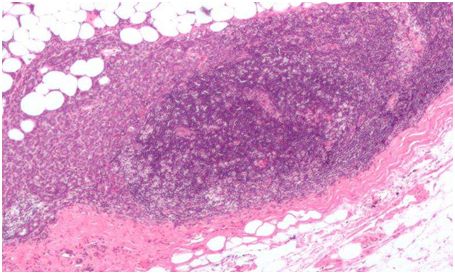
2016年9月6日/生物谷BIOON/–在来自澳大利亚墨尔本大学和维多利亚癌症协会的研究人员的领导下,一项全球大规模的研究证实一些相对罕见的基因突变导致的乳腺癌风险类似于更加常见的BRCA1和BRCA2基因突变导致的乳腺癌风险。相关研究结果于2016年9月5日在线发表在Journal of Medical Genetics期刊上,论文标题为“PALB2, CHEK2 and ATM rare variants and cancer risk: data from COGS”。
墨尔本大学维多利亚综合癌症中心Melissa Southey教授和墨尔本大学流行病学与生物统计学中心Roger Milne副教授领导的这项国际合作研究分析了在四大洲开展的乳腺癌研究、卵巢癌研究和前列腺癌研究中的将近20万名参与者体内的基因突变。具体而言,这项合作研究将在欧洲、澳大利亚、亚洲和非洲开展的120项研究汇总在一起。
研究人员能够证实PALB2和ATM基因发生的突变会增加乳腺癌风险。
在之前的研究中,人们已知这两个基因参与乳腺癌产生,但是在此之前遗传学家还不清楚如何理解这种风险。在第三个基因CHEK2中发现的突变也导致中度的乳腺癌风险。
这是世界上首个大规模研究来研究罕见的基因突变。这些发现将导致人们开展新的基因筛选、咨询和制定新的临床指南。
Southey教授说,癌症研究的一个重大挑战是确定哪些基因突变与癌症风险相关联。
她说,“我们之前的研究着重关注感兴趣的基因,这已导致女性去筛选这些基因发生的变化,但是我们还没有足够多的信息来给出建议。”
“仅当在不同的国家对成千上万人的DNA进行筛选后,我们才能对它们在导致癌症中的重要性获得更加清楚的认识。”
Southey教授说,如今,新的基因技术允许在单次检测中测试多个基因中发生的突变。
她说,“如今,我们能够确信地将PALB2和ATM基因包括在检测中。”
Milne说,罕见的基因突变在所导致的癌症中占绝大多数,即所谓的癌症的长尾理论(long tail of cancer),换言之,相对知名的和众所周知的基因突变只在所导致的癌症中占相对较少的比例。
在一项常规的研究中,每种罕见的基因突变可能仅影响一到两个人,但是在全球水平上,可能影响上千名癌症病人。
他说,“相同的基因突变可能导致一个人患上乳腺癌,导致另一个人患上一种不同的癌症,或者可能导致同一个人患上多种癌症,而且所有的这些癌症可能对同一种药物作出反应。”
“最终,我们对不同的基因突变了解得越多,我们将离个人化疗法越来越接近。”
大型研究也是至关重要的,因为它们能够尽可能地准确地评估癌症风险。
Southey和Milne已开始针对另外的2000多种罕见的基因变异开展更多的研究,期待在2017年发布新的发现。(生物谷 Bioon.com)
本文系生物谷原创编译整理,欢迎转载!点击 获取授权 。更多资讯请下载生物谷APP。
PALB2, CHEK2 and ATM rare variants and cancer risk: data from COGS
Melissa C Southey, David E Goldgar2, Robert Winqvist3, Katri Pylkäs3, Fergus Couch4, Marc Tischkowitz5, William D Foulkes6, Joe Dennis7, Kyriaki Michailidou7, et al.
doi:10.1136/jmedgenet-2016-103839
PMC:
PMID:
Background The rarity of mutations in PALB2, CHEK2 and ATM make it difficult to estimate precisely associated cancer risks. Population-based family studies have provided evidence that at least some of these mutations are associated with breast cancer risk as high as those associated with rare BRCA2 mutations. We aimed to estimate the relative risks associated with specific rare variants in PALB2, CHEK2 and ATM via a multicentre case-control study.
Methods We genotyped 10 rare mutations using the custom iCOGS array: PALB2 c.1592delT, c.2816T>G and c.3113G>A, CHEK2 c.349A>G, c.538C>T, c.715G>A, c.1036C>T, c.1312G>T, and c.1343T>G and ATM c.7271T>G. We assessed associations with breast cancer risk (42 671 cases and 42 164 controls), as well as prostate (22 301 cases and 22 320 controls) and ovarian (14 542 cases and 23 491 controls) cancer risk, for each variant.
Results For European women, strong evidence of association with breast cancer risk was observed for PALB2 c.1592delT OR 3.44 (95% CI 1.39 to 8.52, p=7.1×10−5), PALB2 c.3113G>A OR 4.21 (95% CI 1.84 to 9.60, p=6.9×10−8) and ATM c.7271T>G OR 11.0 (95% CI 1.42 to 85.7, p=0.0012). We also found evidence of association with breast cancer risk for three variants in CHEK2, c.349A>G OR 2.26 (95% CI 1.29 to 3.95), c.1036C>T OR 5.06 (95% CI 1.09 to 23.5) and c.538C>T OR 1.33 (95% CI 1.05 to 1.67) (p≤0.017). Evidence for prostate cancer risk was observed for CHEK2 c.1343T>G OR 3.03 (95% CI 1.53 to 6.03, p=0.0006) for African men and CHEK2 c.1312G>T OR 2.21 (95% CI 1.06 to 4.63, p=0.030) for European men. No evidence of association with ovarian cancer was found for any of these variants.
Conclusions This report adds to accumulating evidence that at least some variants in these genes are associated with an increased risk of breast cancer that is clinically important.
 基因君官网
基因君官网